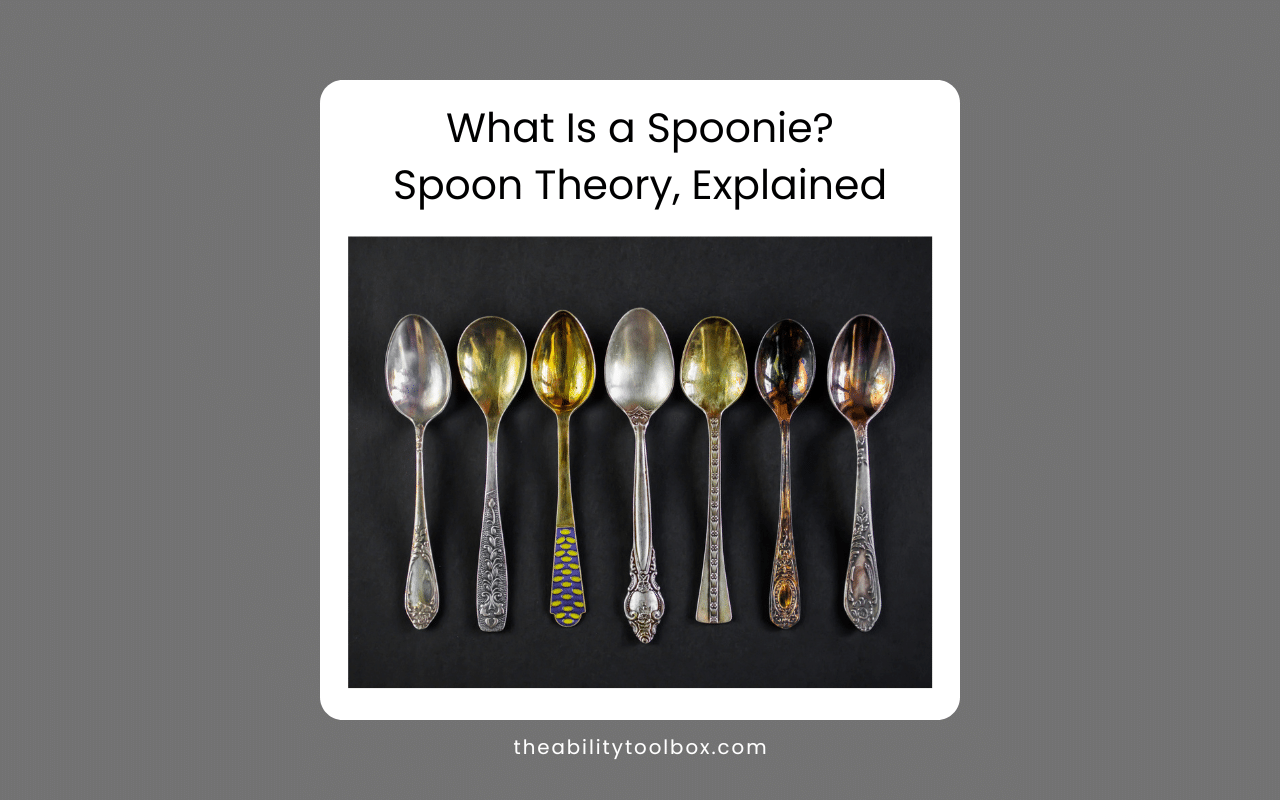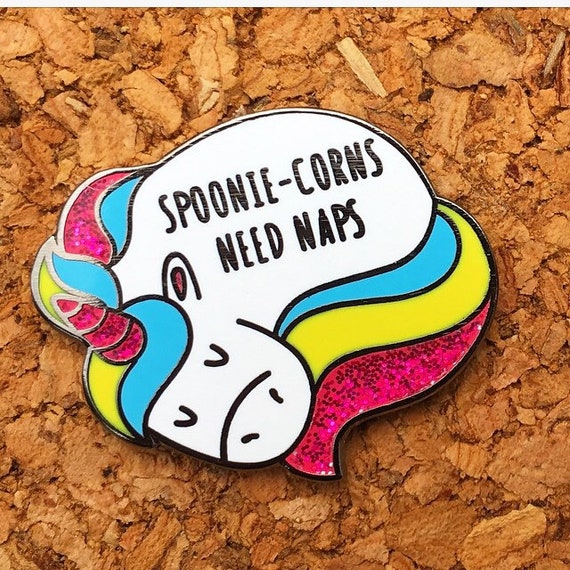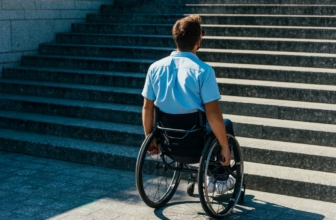Spoon theory. Spoonie. If you or a loved one has recently been diagnosed with a chronic illness, you may hear these terms and be confused. What is a spoonie? What do spoons have to do with chronic illness? Here's everything you need to know about spoon theory and why some people with chronic illnesses, mental illnesses, and disabilities call themselves “spoonies.”
What is the spoon theory?
The spoon theory is a way to explain what life is like for someone who lives with a chronic illness. The spoon theory is based on the idea that people with chronic health conditions have a limited amount of “spoons” each day — with spoons being a unit of measurement for energy. Each activity in life takes up a certain number of spoons — for example, getting dressed might take one spoon of energy, while taking a shower might take two spoons. When you're living with a chronic illness, every day is filled with tough choices about which activities you can afford to do and which ones you have to skip.
Who created the spoon theory?
The spoon theory was created by chronic illness advocate Christine Miserandino, who has lupus. In her original blog post about the spoon theory, she talks about how the idea came to her during a conversation with a friend. Her friend had asked her what it was like to live with lupus, and she found herself struggling to find the words to explain it. Since they were sitting in a diner, she gathered spoons from nearly empty tables and used them to illustrate her experience. You can (and should) read her original story here.
Why do people with a disability or chronic disease have a lower number of spoons than able-bodied people?
Every human being has limited physical and mental resources, but people with chronic illness start the day with fewer spoons than those who are physically and mentally healthy. They have to plan each day carefully based on how many spoons they have — or think they have — available. They may try to keep a spoon in their pocket, in reserve in case something unexpected happens, but that's not always possible due to the unpredictable nature of their health.
Patients with a chronic disease routinely experience chronic fatigue, pain, immune system dysfunction, and other symptoms that can be debilitating. They may take medication that causes side effects such as drowsiness or nausea. Doctor appointments and treatments take time from other activities and reduce energy levels. And just dealing with daily tasks may use up more spoons, especially if those activities aggravate pain and fatigue.
For many people with chronic illnesses, symptoms vary from day to day. So on a good day, they might have enough spoons to get through the activities they need to do. But on a bad day, they might not have enough spoons — and that's when things start to fall apart. If you run out of spoons, you can't do anything else that day, and if you go beyond your limits, you may pay the price for days or weeks afterward.
What happens when a person with a chronic illness runs out of spoons?
When people with chronic illnesses push themselves too hard and repeatedly do things that cause them to run out of spoons, it can trigger a chronic illness flare-up, or “flare.” During a chronic illness flare, symptoms become exponentially worse, and a person may be unable to go to work or school, leave the house, or even get out of bed. Flares can last for days, weeks, or months.
Sometimes chronic illness flares are unavoidable, but often, they can be prevented or lessened by carefully managing symptoms and limiting activities. This is where the spoon theory can be extremely useful. It can be tough to explain how your energy levels fluctuate day-to-day, or why you sometimes have to cancel plans, but the spoon theory provides a relatable metaphor.
How can the spoon theory help people understand chronic illness?
Although it may seem strange to use a utensil as a metaphor for energy, in an unexpected way, it works. We all use spoons every day without even thinking about them, and generally take them for granted. Once in a while, we might be about to eat and then discover we forgot to do the dishes, but in general, we have enough spoons that we can heat up a can of soup without checking the utensil drawer first.
In the same way, healthy people can use energy without even thinking about it, or at least they can reliably make plans around what they can do each day. But chronic conditions are unpredictable. People with chronic pain and/or fatigue often don't know if they'll have any spoons left after (or sometimes even before) getting out of bed and getting dressed. If there's something they must do or really want to do on a particular day, they may have to plan for days or weeks in advance, conserve their energy beforehand, and spend days or weeks recovering afterward.
Does the spoon theory apply to both physical and mental illness?
Yes. The spoon theory can be used by anyone who lives with a chronic health condition that significantly affects their daily life. This includes people with an invisible illness such as lupus, fibromyalgia, arthritis, or cancer, and people with a visible disability such as cerebral palsy, spinal bifida, and more. The spoon theory can also apply to neurodivergent people such as individuals with ADHD or autism, and people who live with mental illnesses such as anxiety, PTSD, depression, and bipolar disorder.
Just like physical illness symptoms, mental illness symptoms often change from day to day. For some people with a mental illness, physical tasks such as getting dressed and showering can use more spoons, just as they do for people with a physical illness or disability. For others, spoons are used up in situations that are psychologically stressful, such as giving a presentation at work if you have social anxiety, or encountering a trigger if you have PTSD.
What is a spoonie?
The term “spoonie” is affectionately used to identify oneself as someone who lives with a chronic illness. You don't have to call yourself a spoonie or relate to the spoon theory just because you have a chronic condition, but you can if you want! Spoonie has become a term of empowerment for many people, and spoons are used in everything from chronic illness educational materials to memes, awareness events, t-shirts, jewelry, and more. You will often see the word spoonie used here on The Ability Toolbox and on other websites for people with chronic illness.
Am I a spoonie?
If you're not sure whether or not the spoon theory applies to you, ask yourself if your health condition fluctuates and causes fatigue, pain, and/or limits your ability to do daily activities. If the answer is yes, then you can consider yourself a spoonie.
If you do not have a chronic physical or mental health condition, you can be an ally to your loved ones who do by explaining the spoon theory to people who judge them or say they “don't look sick.” However, please don't coopt the spoon theory by saying you're out of spoons because you have typical, healthy fatigue and pain after a busy day or a challenging workout. That's not the same thing.
Are there alternatives to the spoon theory?
While the spoon theory is a popular way to describe chronic illness, it's not the only way. Some people prefer to use different analogies or metaphors to explain their experiences. Here are a few:
- The Splat System: Created by Christina Irene, the Splat System humorously compares chronic illness symptoms to being run over by a vehicle. Some days it's a moped, some days it's a freight train!
- Bones Day/No Bones Day: Noodle the Pug was an elderly dog who became a TikTok sensation. Every morning, his human would wake him up and show the internet whether he was having a bones day (good day) or no bones day (tough day). Noodle reminds everyone to practice self-care and shows what it's like to have good days and bad days with chronic illness.
- Mobile Phone Theory: The concept of a battery running low may be easier for many people to understand. And being chronically sick is like having one of those phones that never holds a charge!
How can I support a loved one who is sick?
If you have a friend or family member who lives with a significant health condition, ask them if they know about the spoon theory. If they don't, show them this article — it could help them!
Here at The Ability Toolbox, we have lots of articles about how you can offer a handful of spoons, so to speak, to someone who is struggling. Here are a few to check out:
- How to Support Someone Who Often Cancels Plans Due to Chronic Illness
- If Your Loved One Struggles with an Eating Disorder, Remember This
- 6 Ways to Become an Ally to Someone Recovering from Psychosis
Are there spoonie owned businesses I can support?
Yes! Many people in the chronically ill and disabled community are self-employed because it allows us to have a flexible schedule. For example, if we are tired in the morning, or must go to infusion treatments during the day, we can run our businesses at night. Check out these resources:
- AbilityShop Disabled-Owned Business Directory
- Spoonie T-Shirts
- Spoonie Pins, Stickers, and Accessories
And enjoy this small selection of items from spoonie designers. This section includes affiliate links — thanks for supporting disabled-owned businesses!
Looking for more spoonie merch? Check out our articles: Chronic Illness Shirts and Chronic Illness Pins, Stickers, and Accessories
How can I connect with other spoonies?
The Ability Toolbox is a community for people with disabilities, chronic illnesses, and mental illnesses to share our “life hacks” and support one another. Whether or not you identify as a spoonie or find the spoon theory useful, we hope you'll find lots of useful information and resources on our website!
Do you identify as a spoonie? How do you explain your chronic illness to friends and family?
Share your experiences with our safe and supportive community in the comments!
Image by ozemind on Deposit Photos
Founder and Editor-in-Chief of The Ability Toolbox. I received my BA in English from Stanford University and MA in Clinical Psychology from Antioch University Los Angeles, and have worked in entertainment and health media for over 20 years. I also blog about traveling with a disability. As a wheelchair user with cerebral palsy, I am deeply committed to amplifying the voices of the disability community through writing and advocacy.








